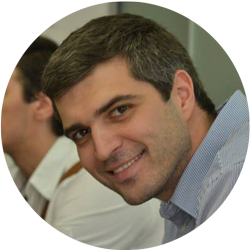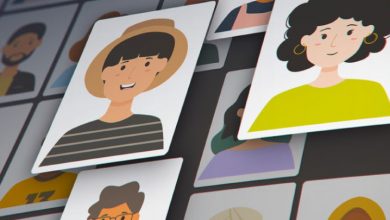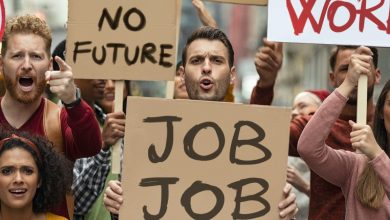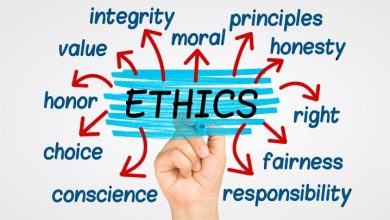EU Youth goals and the Vision of young people
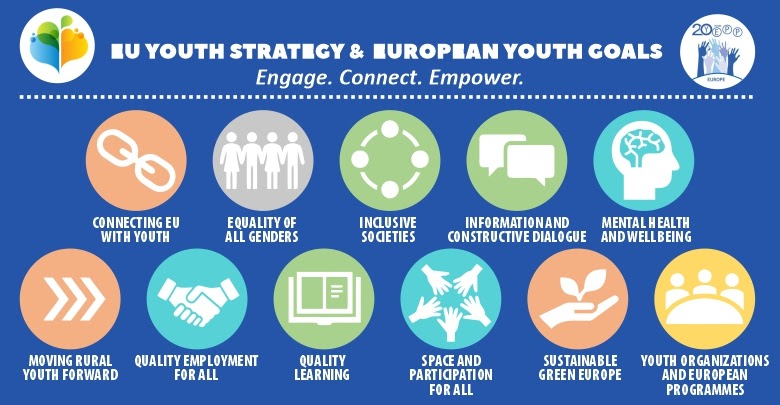
The 11 EU Youth Goals are part of the EU Youth Strategy 2019-2027 and represent the vision of young Europeans. They are an outcome of a structured dialogue process during two years (2017-18) including research, consultations and EU Youth conferences (in total three), where more than 250 youth representatives, policymakers and experts from the youth field met and discussed the vision of young people in EU. Each youth goal has a thematic report that is consisted of:
- What are the challenges young people are facing?
- What is young people’s vision of the future?
- What solutions young people propose?
- Survey data – How important is this issue for young people.
The following article summarizes the “young people’s vision of the future” for each Youth Goal. It is useful for trainers to get a better understanding of the young people’s opinions and vision of the future on relevant topics they care about #EU #Gender #Inclusion #Equality #Wellbeing #Environment etc.
YG 1: CONNECTING EU WITH YOUTH – Foster the sense of youth belonging to the European project and build a bridge between the EU and young people to regain trust and increase participation.
What is young people’s vision for the future?
Young people in the consultation would like EU institutions and their representatives, such as M.E.P.s, to feel more familiar to them. Citizens should be fully aware of the opportunities that the EU is enabling for them and their countries. There is a sense the EU needs to feel linked directly to young people’s lives and their activities on a local and regional level. At the same time, young people should be able to see the bigger picture of the EU and the common ground that exists across the union as a cohesive element
It is hoped that increased publicity, transparency and democracy will lead to a reduction in Euro-scepticism.
YG 2: EQUALITY OF ALL GENDERS – Ensure equality of all genders and gender-sensitive approaches in all areas of the life of a young person.
What is young people’s vision for the future?
Overall, young people want to build a society with strong public sentiment condemning all forms of discrimination. They hope for gender equality and an end to gender-based violence, specifical violence towards girls and young women.
Increasing recognition of discrimination towards girls and young women:
- Raising awareness amongst boys and young men, and their role within it;
- Empowering girls and young women to recognize and speak up against all forms of discrimination and violence towards them;
- Boys and young men taking public stands against discrimination and violence;
Breaking down traditional gender roles and stereotypes
- Ensuring students are fully enabled and encouraged to study any subject, regardless of gender
- Making it acceptable for women to enter any profession, and equalizing labor market opportunities.
- Boys and young men taking greater responsibility within family life.
- Enabling girls and young women to feel safe from violence.
- Ensuring institutions can be trusted to deal with discrimination and violence effectively, and that society does not tolerate it.
YG 3: INCLUSIVE SOCIETIES – Enable and ensure the inclusion of all young people in society.
What is young people’s vision for the future?
According to young people in the consultation, the creation of a more inclusive society requires a shift in attitude within society, so marginalized groups feel a sense of belonging and there are an overall greater tolerance, acceptance and reduced fear of difference. An integrated multicultural society, which still preserves the cultural heritage of various groups as desired. Greater integration was said to require more interaction between communities on a social level, (particularly migrants and non-migrants) and marginalized young people having a greater role within culture, sports, and civil society.
Young people desired equalization of opportunities within the labor market and stronger political representation of marginalized groups and migrants. Participants, also identified a need for greater social support for marginalized young people, so that all people have an acceptable standard of living. This means improving support overall, but also addressing specific needs, such accessible transport for young people with disabilities.
YG 4: INFORMATION & CONSTRUCTIVE DIALOGUE – Ensure young people have better access to reliable information, support their ability to evaluate information critically and engage in participatory and constructive dialogue.
What is young people’s vision for the future?
Young people wish to have access to news and information that is understandable, youth-friendly and not misleading. They would like to be able to cross-check information with other sources and see transparency in the production of content. This requires more fact-checking platforms and tools available, and an increase in the media literacy of young people. Ideally, they wish to be able to evaluate information critically, assess the credibility of the media sources and distinguish between accurate and inaccurate information to form their own opinion.
Consultation responses were divided on the way negative speech and inaccurate information should be dealt with online, some felt it was an unavoidable part of free speech, whilst others called for greater prosecution, censorship and removal, both by network providers and the state.
In general, most consultation reports placed value on young people learning to accept and deal with differences of opinion. This meant taking personal responsibility for engaging in positive debates using tools such as nonviolent communication. There was a sense of a need for online society to develop respect and tolerance for a diversity of opinions and accept that difference was part of human life. Some identified that this was unlikely to be learned online, and young people would need to develop these skills in a real-world setting.
YG 5: MENTAL HEALTH & WELLBEING – Achieve better mental wellbeing and end the stigmatization of mental health issues, thus promoting social inclusion of all young people.
What is young people’s vision for the future?
Young people in the consultation, hoped for reduced pressure to perform within education, with a greater focus on self-development over performance and competition. Linked to this was a desire for simplified job orientation and better career guidance. This was seen to help prevent mismatches between expectations and labor market opportunities.
Young people want to be able to increase their own ability to deal with mental health issues. This means learning skills ranging from emotional intelligence and self-awareness, to time management and coping under pressure. It can also mean increasing media literacy to deal with media messages.
A reduction in stigma around mental health was called for, to enable young people to speak about issues they face with others – this also requires access to supportive networks. Friends and family are particularly important as a source of support and many consultation reports stressed the role of parents. Besides, networks can also include youth workers, teachers, and mental health specialists such as Psychologists.
Finally, young people wanted access to leisure time opportunities and spaces, such as youth centers, sports, or the arts. This was an important source of relaxation and removing stress.
YG 6: MOVING RURAL YOUTH FORWARD – Create conditions that enable young people to fulfill their potential in rural areas.
What is young people’s vision for the future?
Young people want more equalization of opportunities between rural and urban areas, and the development of infrastructure in rural areas, generally. They want to be able to travel within and from rural areas more easily and to be able to access high-quality work and employment directly within rural areas.
A desire for a greater choice of, and easier access to all forms of opportunity including, leisure, education, healthcare, youth, and cultural opportunities. In most cases, this meant providing opportunities within rural areas. However, it was also recognized this could mean providing better information about, and transport to, urban opportunities or EU level opportunities. Access to reliable internet connections was an important part of this. Some young people wanted a stronger connection to decision making and political and administrative centers and a closer connection to the government. It was hoped rural areas will become more attractive for young people to remain in. In general, there was a desire to create a more positive image of rural areas, both for their residents and to attract tourism and investment.
YG 7: QUALITY EMPLOYMENT FOR ALL – Guarantee an accessible labor market with opportunities that lead to quality jobs for all young people.
What is young people’s vision for the future?
Young people want to finish education with suitable skills for the future labor market. This includes communication and language skills, leadership and entrepreneurship and digital and technological literacy. It was said to be important to learn how to be flexible and manage your own learning, making changes to a new career when needed.
Young people want the education system to be linked to the labor market and modernization overall. Gaining more practical experience of working whilst studying and having direct links to employers is important. They want good access to information on the labor market and job opportunities as well as better recognition of non-formal or informal learning.
Young people want to be more aware of the worker’s rights and have better support from employers for marginalized young people.
YG 8: QUALITY LEARNING – Integrate and improve different forms of learning, equipping young people for the challenges of an ever-changing life in the 21st century.
What is young people’s vision for the future?
The main trend is that young people want education that provides a wide variety of learning, and that is much broader than just preparation for employment. Based on the working group reports, the competencies that young people desire are:
- Basic general knowledge (literacy, numeracy, etc)
- Foreign languages (particularly to enable freedom of movement)
- Media literacy and the ability to evaluate news sources and information
- Communication and leadership skills
- Digital and technological skills
- Understanding of the civic and political systems, including the EU
- The ability to manage your own learning – ‘learning how to learn’
- Independent living skills (e.g. self-care, healthy living, and money management)
- Critical, analytical and creative thinking
- The ability to seek and find work, and operate in a work environment
- Emotional skills and intelligence (e.g. self-confidence, resilience, failure management, flexibility, and self-understanding)
- Understanding of diversity and tolerance, and sensitivity to multicultural situations
Although participants talked mainly of schools and universities, there was a recognition that education should also happen in non-formal and informal settings and a belief from some that not every skill can be taught in school. An increased emphasis on the role of the youth sector in education was highlighted in many working group reports and some called for greater coordination across the EU of professional and educational qualifications.
YG 9: SPACE AND PARTICIPATION FOR ALL – Strengthen young people’s democratic participation and autonomy as well as provide dedicated youth spaces in all areas of society.
What is young people’s vision for the future?
In the consultation, young people described a desire for youth spaces that were inclusive, safe and accessible to all. They should be modern, welcoming and conveniently located. Most importantly they should be youth-led spaces, though the need for welcoming staff, and limited youth work support was recognized. It was identified that some groups of marginalized young people may benefit from dedicated spaces. Settings for youth spaces could mean youth centers, hostel, and youth houses, but also libraries, historic sites, outdoor spaces, heritage sites or virtual spaces. Youth spaces should enable meetings between young people from different backgrounds dynamically, to socialize, engage in learning programs, cultural events, develop your own initiatives and participate in non-formal education. Youth spaces also had a key role to play in providing information to young people, particularly to enable their participation.
The importance of meaningful dialogue and debate within youth spaces was emphasized. Discussion with peers was said to develop your opinions and political motivations. Connected to this some consultation reports stressed the need for systematic links between politicians or public institutions and youth spaces. The regular engagement of decision-makers directly within youth spaces was thought to be a key part of developing youth participation. In this way, political debate occurs not just between young people, but also with decision-makers. Virtual spaces and local structured dialogue style process were particularly highlighted as a way of achieving this.
To further develop youth participation there were also strong calls in some consultation reports strengthening youth organizations and youth or school council structures. However, some also raised concerns they did not reach enough young people. Voting at 16 also was an issue that divided respondents. The goal in all cases is to find ways to make participation accessible to all, by strengthening existing mechanisms and creating new ones. Linked to this there was a strong desire from young people that public authorities and politicians should take greater action in response to the voices of young people.
YG 10: SUSTAINABLE GREEN EUROPE – Achieve a society in which all young people are environmentally active, educated and able to make a difference in their everyday lives.
What is young people’s vision for the future?
Young people who took part in the consultation called for increased awareness of the issue amongst all young people so that more young people are motivated to be active on the agenda. They wanted a society where young people can take greater personal responsibility for their lifestyles. This means that young people must have access to sustainable consumption options such as effective public transport, ethical produce, and renewable energy, and be sufficiently motivated to use them. Finally, young people want to be positive change-makers. This means, greater involvement of young people in environmental protection programs – acting as volunteers, peer educators, and activists in programs that directly create positive environmental change (tree planting, cleanup operations, etc). Besides, young people wish to take a greater role in political discussions and campaigns on environmental issues.
YG 11: YOUTH ORGANISATIONS & EUROPEAN PROGRAMMES – Ensure equal access for all young people to youth organizations and European youth programs, building a society based on European values and identity
What is young people’s vision for the future?
Many working group responses called for greater financing and state support for European youth programs and the youth sector as a whole, so that no group of young people is excluded from these opportunities. Young people called for a clear, transparent and easily accessible ‘offer’ to young people. This should show benefits of taking up youth opportunities, the competencies gained and should be well published to both young people and parents. European youth programs should be well integrated into formal education. All schools and student counselors should know about Erasmus + and participation in European youth opportunities should provide an official excuse from education.
The youth sector needs to be stronger and well supported. There should be greater recognition of youth work and volunteering, stronger networks between organizations and better training for youth workers. Youth organizations themselves should be supported to engage with a wider range of young people.
Why did I choose this tool?
These opinions of young people are derived from a relevant policy document that will be the basis for developing programs and budgets for addressing young people’s needs and desires. Understanding the vision of young people in Europe is a very important knowledge that a trainer should have when preparing him/herself for training practice. These “visions” can be also used for further consultations and reflection with other trainers and learners and one can create its own vision on a certain topic.
